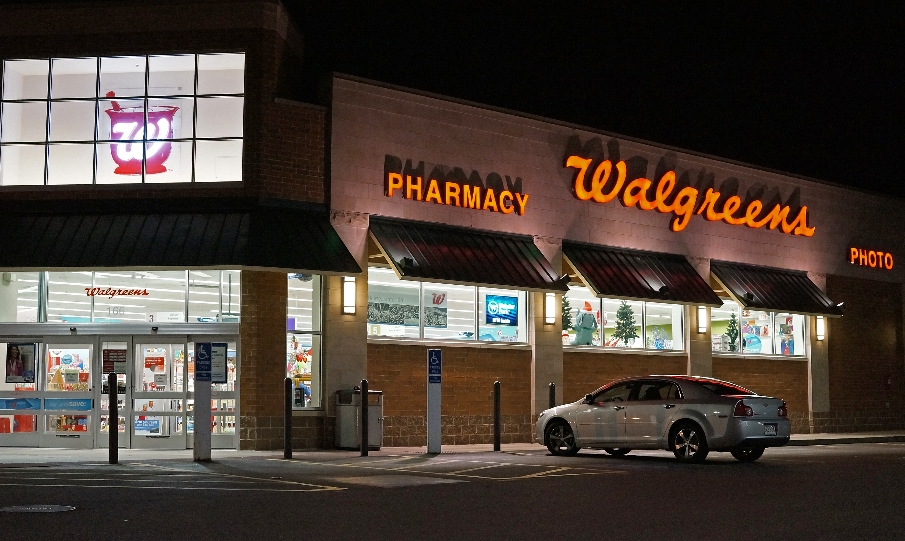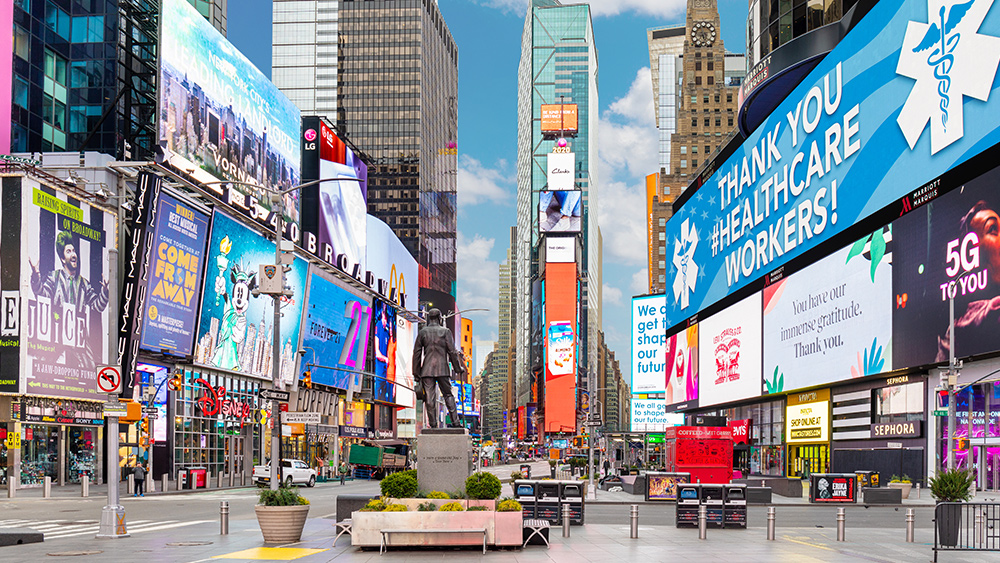UK on track to become a FULLY CASHLESS NATION by 2035 as use of cash declines rapidly
07/06/2023 / By Arsenio Toledo

The United Kingdom is on track to become a fully cashless nation by 2035 as more and more adults, spurred on by government incentives, resort to using digital payment options.
In 2012, around 60 percent of all transactions in the U.K. were still conducted using physical currency. At this rate, by the end of the decade transactions using cash notes and coins will account for just six percent of payments, and by 2035 virtually all transactions will be conducted through debit and credit cards or a form of digital payment system. (Related: Top Bank of England official warns cash is becoming “less usable” as more people opt for digital payments.)
The Guardian already reported that in 2021, more than 23 million people in the U.K. – which has a population of around 67 million – used virtually no cash, with debit cards being the most-used non-cash method of payment. Cash transactions only accounted for 15 percent of all payments that year.
British Prime Minister Rishi Sunak also rejected calls from within his own party for shops and establishments to be mandated to accept cash payments.
“We know that cash continues to be used by millions of people, particularly those in vulnerable groups … but as technology and consumer behavior changes, it is right that organizations themselves should be able to choose the forms of payment that they will accept.”
In a poll of 1,006 people, the Daily Express found that 92 percent of the media outlet’s readers are worried about the U.K. becoming a cashless society.
“I find it quite appalling that shops and businesses refuse to accept the country’s legal tender via cash payment,” remarked one survey participant. “It is wrong that businesses choose what means of payment they accept.”
“Anyone who welcomes this is not thinking straight,” remarked another participant. “It is lethal, it means the government and other agencies know all your business and there is nothing private. Why should we hand over this power to our government? It should not be happening and people need to say no.”
Media outlet launches “Don’t Kill Cash” campaign
British media outlet GB News has launched the “Don’t Kill Cash” campaign in an effort to get the U.K. government to slow down the speed at which British society is becoming cashless, which they warn threatens to leave vulnerable people who rely on cash behind “by the relentless march of technology.”
GB News’ goal is to get enough signatures on its petition to allow for debates in the British Parliament regarding the digitization of financial transactions.
“The financial exclusion has to stop,” warned GB News Head of Digital News Dan Falvey. “More than five million adults still rely on cash in the U.K. and it’s used in six billion transactions every year, but there are strong vested interests pushing for it to be permanently replaced by debit and credit cards and other electronic payments. These cost ordinary Britons more in the long run and enable third parties to track people and their spending.”
“There’s a lot of older people, in particular, who need cash. They haven’t got smartphones, they want to use cash,” said GB News Economics and Business Editor Liam Halligan. “And also, if everything is not cash, if everything’s bank transfers, every single transaction we do can be monitored by banks and, therefore, potentially by the state. A lot of people are concerned about that as well.”
Around 75 percent of people in the U.K. over the age of 65 with a bank account said they want to continue conducting at least one banking task in person at a bank branch, building society or post office.
“From paying for necessities at the corner shop to paying tradespeople like window cleaners, cash is easy to use and the most trusted means to settle small bills,” said Dennis Reed, director of Silver Voices, an advocacy organization for senior citizens in the United Kingdom. “The remorseless drive to digital transactions through smartphones and apps is isolating millions of older people from modern society and it is totally unnecessary.”
“If cash disappears, it will have to be reinvented almost immediately, to oil the wheels of commercial transaction,” he added. “We get regular reports from members that they are finding it difficult to access and spend cash. It’s another isolating factor for older people and it’s of great concern.”
Learn more about the unrelenting advance of digital finance at CurrencyCrash.news.
Watch this clip from GB News discussing the “Don’t Kill Cash” campaign and the consequences of transitioning to a fully cashless society with Liam Halligan.
This video is from the channel Make Earth Great Again on Brighteon.com.
More related stories:
DIGITAL PRISON: ALDI grocery stores in London now requiring digital, cashless purchases.
Kiss your autonomy goodbye: One-world digital currency receives endorsement to replace fiat money.
Brave New Europe: Pay fine and go directly to JAIL if you use more than $1,000 in cash.
European Parliament to criminalize physical cash use by imposing limit on cash transactions.
Sources include:
Submit a correction >>
Tagged Under:
big government, Cashless, Collapse, currency crash, currency reset, digital currency, digital payments, digitization, economic collapse, economic riot, economics, economy, finance, finance riot, financial crash, money supply, United Kingdom
This article may contain statements that reflect the opinion of the author
RECENT NEWS & ARTICLES
COPYRIGHT © 2017 RISK NEWS




















